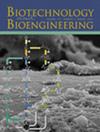Recent Research on Chondrocyte Dedifferentiation and Insights for Regenerative Medicine
Abstract
Chondrocytes maintain the balance of the extracellular matrix by synthesizing glycoproteins, collagen, proteoglycans and hyaluronic acid. Chondrocyte dedifferentiation refers to a process in which chondrocytes lose their mature differentiated phenotype and transform into a fibroblast-like morphology with fewer differentiated stages and inferior function under external stimulation. The important mechanism of homeostasis loss in osteoarthritis (OA) is a change in the chondrocyte phenotype. The dedifferentiation markers of chondrocytes are upregulated in OA, and the pathogenic factors related to OA have also been shown to enhance chondrocyte dedifferentiation. In this review, we compile recent studies on chondrocyte dedifferentiation, with an emphasis on potential markers and the underlying mechanisms of dedifferentiation, as well as the current research progress in inhibiting dedifferentiation or achieving redifferentiation. A deep understanding of chondrocyte dedifferentiation would not only support the pathogenesis of OA theoretically but also provide insightful ideas for regenerative medicine to manipulate the functional phenotype of cells.

 求助内容:
求助内容: 应助结果提醒方式:
应助结果提醒方式:


